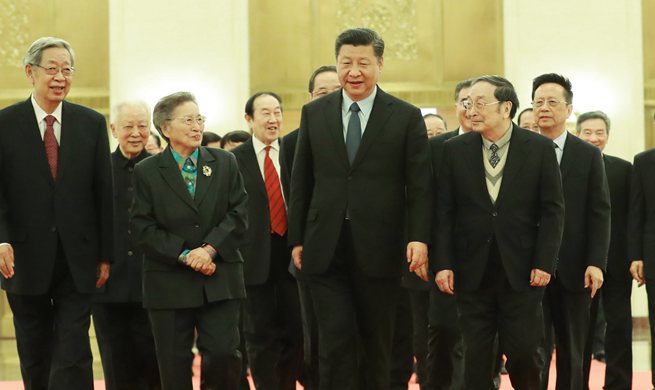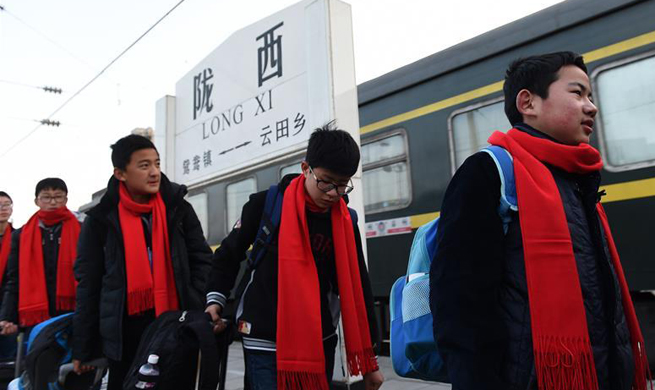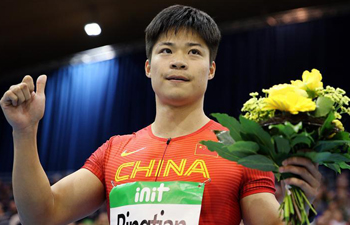BEIJING, Feb. 7 (Xinhua) -- China and Britain have made positive progress toward an enhanced version of the "Golden Era" of bilateral ties, following British Prime Minister Theresa May's visit.
Business deals worth more than 9 billion pounds (12.6 billion U.S. dollars) signed during the trip are eye-catching. But what's more, the interaction between the Chinese and British leaders show that countries, with different political and social systems, can dovetail their development strategies and deepen ties in their core interests.
In 2017, bilateral trade rose 6.2 percent to 79.03 billion U.S. dollars, with China's exports to Britain up 1.8 percent, while its imports from Britain surged 19.4 percent.
Facing a changing world full of multiple challenges, no single country can make the world better.
It's unwise to use political and ideological gauges to distinguish between friends and enemies, let alone to prevent economic cooperation.
"Gentlemen seek harmony but not uniformity," Chinese philosopher Confucius said, and his words are as valuable as ever.
Both China and Britain are at the entrance to a new era. China is seeking to achieve high-quality development after decades of high-speed growth while Britain aims to become a "Global Britain."
The two countries have showed their need at adapt to the modern era respond to the needs of their respective development stages and broaden bilateral cooperation.
An enhanced version of the "Golden Era" has come into view.
The China-proposed Belt and Road Initiative offers huge potential for China-Britain cooperation. It provides opportunities in logistics and infrastructure construction, stimulating supply on both sides.
To meet China halfway, the British government recently announced the British export finance agency will support up to 25 billion pounds of new business along the Belt and Road in Asia.
More opportunities, especially in areas including infrastructure, the internationalization of the Chinese currency RMB, green finance, and technological innovation will emerge, as a post-Brexit Britain seeks to build global partnerships while sticking to free trade and an open economy.
Both sides will also seek to make new achievements in corporate cooperation in the financial, innovation, telecom, new energy and other fields.
Not only this, the two countries can also further tap cooperation potential in global governance, climate change, sustainable development and fighting terrorism.
Maybe the world should take a leaf out of the China-Britain cooperation playbook by being open, pragmatic and inclusive.

















